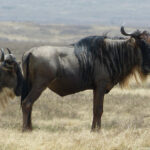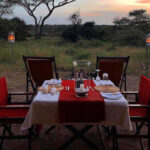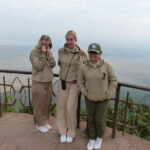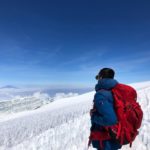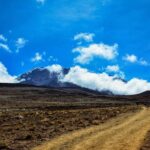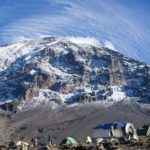
Essential Swahili Phrases for Navigating Your Safari with Rolux Safaris & Trekking
When traveling with Rolux Safaris & Trekking, knowing some basic Swahili phrases can be incredibly helpful. Greetings are a great place to start. “Jambo” means hello, and “Habari” means how are you? Using simple courtesy phrases like “Asante” for thank you or “Tafadhali” for please will go a long way in creating positive interactions. Locals appreciate the effort made to speak their language.
Getting lost in the wild might be worrisome, but knowing a few key phrases can guide you better. If you need directions, “Wapi” means where. For instance, “Wapi mlima?” translates to “Where is the mountain?” Similarly, if you need assistance, saying “Naomba msaada” can come in handy. You can always pair these phrases with gestures to make your point clearer.
Food and lodging are two major aspects of any safari. Knowing how to ask for food or where to sleep will make your adventure smoother. “Nina njaa” means I’m hungry, and “Nina kiu” means I’m thirsty. When looking for a place to stay, “Ninatafuta hoteli” translates to I’m looking for a hotel. These phrases will help you manage your daily needs effectively.
Safety must always be a priority, and knowing how to communicate emergencies is vital. “Msaada” is help, and “Ninakimbia” means I’m running. If you feel unwell, “Ninaumwa” translates to I’m sick. Always carry a few key emergency phrases written down. It’s better to be safe and prepared with Rolux Safaris & Trekking.
Greetings and Polite Expressions
Understanding and using greetings in Swahili will make a great impression during your safari with Rolux Safaris & Trekking. “Jambo” is a common way to say hello. However, you can also use “Habari,” which means “How are you?” Responding with “Nzuri” for good or “Salama” for peaceful will show your engagement in the conversation. These simple interactions can create a friendly atmosphere.
Polite expressions are essential in making your communication smoother. “Asante” means thank you, and “Asante sana” means thank you very much. Adding “Tafadhali” to your requests shows politeness, as it translates to please. For example, “Tafadhali nisaidie” means please help me. Using these phrases will make people more willing to assist you.
Expressing apologies is also important. If you need to say sorry, use “Pole” for a casual apology or “Samahani” for a more formal one. This shows respect and can ease any misunderstandings. Combining these polite phrases with a friendly tone will make your interactions more positive and respectful.
Phrases such as “Karibu,” which means welcome, can make others feel valued. When someone welcomes you, respond with “Karibu sana,” meaning you’re very welcome. Simple words create meaningful connections. These greetings and polite expressions will not only help you communicate effectively but also enrich your safari experience.
Basic Navigation and Requests
When on a safari, knowing a few navigation phrases can make your experience smoother. The word “Wapi” means where. So, if you need to ask where something is, you simply start with “Wapi.” For instance, “Wapi kilima?” means where is the hill? This can help you find your way around easily.
If you need assistance, a simple “Naomba msaada” means I need help. You can also ask for specific things. “Naomba maji” means I need water, and “Naomba chakula” means I need food. Using these requests effectively can ensure you get what you need. It’s always good to know how to ask politely.
Getting around might also require asking for transportation. “Naomba gari” means I need a car. If you need directions, “Nikwambie wapi” translates to tell me where. Here’s a quick list of useful phrases for navigation:
- “Ninaenda” – I’m going
- “Simama hapa” – Stop here
- “Nisaidie kuelekea” – Help me navigate
Making simple requests can enhance your travel experience. “Naomba usaidizi” means may I have some help. If you’re looking for lodging, “Ninahitaji chumba” means I need a room. Understanding these phrases helps in daily interactions. This removes potential hurdles during your safari with Rolux Safaris & Trekking.
Dining and Accommodation Talk
Knowing how to communicate your dining needs is essential on a safari. If you are hungry, you can say “Nina njaa,” which means I’m hungry. To ask for water, use “Naomba maji.” If you need a specific drink, “Naomba chai” means I want tea. Being able to express your basic needs can make mealtime more enjoyable.
Ordering food can be made simpler with a few key phrases. “Ningependa” means I would like. For example, “Ningependa kuku” translates to I would like chicken. If you want your food prepared a certain way, “Pasipo viungo” means without spices. These phrases can help you ensure your meal is cooked to your preference.
When it comes to finding a place to stay, using the right words matters. “Ninahitaji chumba” means I need a room. If you want to ask about the price, say “Bei gani?” Common terms for room features include “Kitanda” for bed, and “Bafuni” for bathroom. Knowing these will help you secure the best accommodations.
- “Hoteli” – Hotel
- “Nyumba ya kulala wageni” – Guest house
- “Chakula” – Food
- “Meza” – Table
If you need assistance with services, you can use “Huduma gani mnatoa?” which means what services do you provide? This could range from housekeeping to laundry. “Huduma ya chumba” means room service. Asking these questions ensures you are fully aware of the amenities offered.
Communicating mealtime preferences can enhance your dining experience. If you have dietary restrictions, “Sili nyama” means I don’t eat meat. Additionally, “Naomba mboga tu” means just vegetables, please. Being clear about your dining needs will help you enjoy your meals while exploring with Rolux Safaris & Trekking.
Emergency or Health-related Phrases
Understanding how to communicate in case of an emergency is crucial. If you need to call for help, “Msaada” means help. You can say “Nahitaji msaada” for I need help. In a medical emergency, “Daktari” means doctor. Familiarizing yourself with these terms can save valuable time.
If you feel unwell, there are essential phrases to know. “Ninaumwa” means I am sick. For something specific, “Nina maumivu ya kichwa” translates to I have a headache. Knowing how to describe your pain, like “Nina maumivu ya tumbo” for I have a stomach ache, helps in getting the right treatment. Clarity in communication helps healthcare providers assist you better.
- “Hospitali” – Hospital
- “Dawa” – Medicine
- “Nimeumia” – I am injured
- “Ambulance” – Ambulance
In case of a more serious incident, knowing how to contact emergency services is vital. “Piga namba dharura” means call emergency number. You can also ask for immediate assistance with “Hapa haraka” meaning come here quickly. This can be a lifesaver in critical situations. Being prepared with these phrases makes a big difference.
If you’re allergic to something, it’s important to communicate that. “Mimi ni mzio wa …” means I am allergic to … and you can fill in the blank with the relevant substance. For example, “Mimi ni mzio wa maziwa” means I am allergic to milk. Knowing how to express these health concerns helps in avoiding potential health risks. Clear communication is key to safety.

Basic Swahili Words and Phrases for Safari in Africa
Conclusion
Mastering basic Swahili phrases can significantly enhance your safari experience with Rolux Safaris & Trekking. It fosters positive interactions and shows respect for the local culture. Simple greetings, polite expressions, and essential navigation terms make travel smoother and more enjoyable.
Preparation is key to any successful journey. Learning these useful phrases ensures you can communicate effectively in various situations. With these tools, you’re well-equipped for an enriching and memorable safari adventure.


